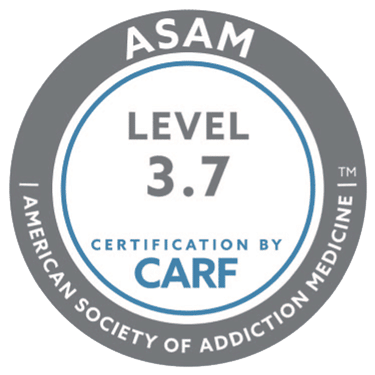The term narcissism has its roots in Greek mythology, and you might be reminded of the mythological figure Narcissus if you’ve studied this topic in the past. Also known for being the son of a god, Narcissus is described in myths as falling in love with his own reflection when he saw it in a stream.
While the concept of a handsome god falling in love with himself might be funny, there is some caution meant to be shared by this tale. Narcissistic personality disorder and its associated narcissistic behavior can lead to some serious problems if someone isn’t able to let go of their heightened sense of self-importance. This can be particularly challenging when dealing with a covert narcissist, as their manipulative tendencies are often hidden beneath a façade of vulnerability.
Today, narcissism seems to be a buzzword that you may hear a lot about on social media. You may even recognize some of the traits in yourself or someone else, perhaps even in a narcissistic partner. But, it’s important to note that a true diagnosis can only come from a trained mental health professional who is familiar with using a diagnostic and statistic manual to identify common disorders.
Since narcissism falls along a spectrum, the following description of traits is meant to be used for awareness rather than self-diagnosis. As you read, remember that it’s best to seek assistance from a professional counselor at Recreate Behavioral Health if any of the following traits spark concern for yourself or someone you love.

Explore the 12 Common Traits of a Narcissist
Most people who have narcissistic traits are also lovable, kind and care about the people in their lives. Remembering that these are only a few traits that may lead to negative experiences helps you also see the good in yourself or others who can benefit from learning healthy coping strategies for managing their mental health.
- Grandiosity: This trait involves having an overly inflated sense of superiority or a grandiose sense of self-importance.
- Need For Excessive Admiration: Someone with narcissistic personality disorder may crave constant validation and attention from others that people may find hard to provide enough of to satisfy their needs.
- Lack of Empathy: It might be hard to understand or care about other people’s emotions and feelings. Some people describe this as being cold-hearted, and it can potentially lead to emotional abuse.
- Entitlement: Although everyone deserves recognition sometimes, a narcissist may have an extreme sense of entitlement that they should receive special treatment or privileges that others don’t get.
- Exploitative Behavior: Using others for personal gain without any sense of remorse or guilt can lead to significant problems with maintaining healthy relationships.
- Preoccupation With Unlimited Success: Becoming fixated on fantasies of gaining power through competitiveness, having supreme beauty or major achievements indicates that a person might have narcissistic personality disorder.
- Arrogance: Loved ones of someone with narcissism may find it challenging to live with their condescending behavior, even when the person doesn’t mean to hurt their feelings.
- Difficulty Handling Criticism: Narcissistic abuse can occur due to this trait that could cause someone to react with anger or defensiveness if someone criticizes their behavior.
- Manipulative Tendencies: This is often a difficult personality disorder to diagnose when a person also manages to exhibit intense charm (e.g., love-bombing). But, a professional counselor might note this trait when someone uses their charm or deceit only to get what they want.
- Envy or Jealousy: The need to be the constant center of attention can make someone feel envious of other people’s success. Or, someone with NPD might believe that everyone envies them due to their sense of grandiosity and high-status beliefs.
- Fragile Self-Esteem: This trait is sometimes hard to detect since people with narcissism often project extreme confidence, but hypersensitivity and insecurities often lurk beneath the surface of their actions.
- Superficial Relationships: The strong personality traits of someone with NPD might make them struggle with maintaining deep or meaningful connections. In some cases, relationships are fleeting once someone with NPD determines a person is no longer useful for driving their success or meeting their emotional needs.

Understand How Narcissism Impacts Relationships and Mental Health
Unfortunately, narcissism tends to take its toll on family and professional relationships. You may also struggle with maintaining close friendships if you have narcissistic personality disorder. In many cases, the desire to be the center of attention could cause you to ignore the needs of others.
If you struggle with accepting criticism, then you may have strong reactions to requests from others at home or work. In some cases, you may have difficulty demonstrating empathy for other people’s feelings. Narcissists may inadvertently engage in emotional abuse tactics such as gaslighting that cause the people around them harm.
While many of the traits of narcissism are harmful, it is important to remember that most people with this personality disorder want the people around them to be happy. Seeking mental health treatment can help you learn how to manage your personality traits and find healthy communication strategies that improve your personal relationships.
Know When to Seek Help
Noticing a narcissistic trait or two isn’t always cause for concern, especially if they are mild or limited to specific circumstances. After all, most people have felt some degree of needing validation from others in their lives. You or a loved one might be briefly preoccupied with success in a new job or academic program.
However, you will want to be concerned if these traits last or begin to cause problems for yourself or others. Being in a narcissistic relationship could cause your self-esteem to plummet. Alternatively, you and a partner with narcissistic personality disorder might struggle with communication and making sure that both of your needs are met.

People with narcissistic personalities may also fall prey to substance misuse if they have a fragile self-image or are unable to get the attention they crave. Body dysmorphia, anxiety and depression can also accompany a person’s need for perfection, and the symptoms of narcissism and co-existing mental health conditions can sometimes overlap.
You’ll want to seek help if you find that your personality traits seem to interfere with your ability to maintain healthy relationships. Naturally, you’ll need to reach out for assistance from a professional mental health care provider if you or someone you love is struggling with the effects of emotional abuse or exhibiting signs of addiction.
Recreate Behavioral Health provides support for people who struggle with narcissistic tendencies along with those who live with someone who exhibits these traits. Seeking professional help through our treatment program gives you access to essential services that can help you begin with an accurate diagnosis.
Once you know if you are dealing with narcissism and other underlying mental health conditions, you can receive the treatment you need to begin building healthy relationships and overcoming narcissistic abuse such as the following:
- Cognitive Behavior Therapy (CBT)
- Dialectical Behavior Therapy (DBT)
- Family Therapy
- Group Therapy
Reach Out For Confidential Mental Health Support Today
Our team at Recreate Behavioral Health is always ready to help you or your loved one find the support you need to move forward with healing from narcissistic abuse, addiction and other common mental health conditions and personality disorders. We encourage you to reach out to us today to begin your journey toward finding greater mental health and happiness. If you suspect you are involved with a narcissistic individual, we can provide resources and support to help you navigate this challenging situation.










